Table of Contents
For Paul, an 89-year-old Chinese-American gentleman I met in a bar yesterday who has an even fouler mouth than I do!
Acknowledgments
Matt: Thanks to Brendan OKane, who taught me how to say, fuck [my] grandpas piss-stinking asshole, Hans Cui, the Canto-Canuck for his infinite filthiness, Huang Sui for her long distance kinkiness, Shanghai Lane for the long Logo sessions, Catherine Mathes and Derek Sandhaus for teaching me how to get my swerve on, Nick, Keith, and the good people at Ulysses Press for their endless patience, last but not least the Godfather of the China Blog MafiaJohn Pasdenfor hooking this up, keeping it real, and for teaching us all the dirty words we know in English and Chinese (We wont tell about the kittens, John!).
Edmund: For my parents, who taught me better, and my teachers, who will hopefully read this with the good humor and tolerance that got them through their classes with me. Thanks to Song Li for her patience, and Ulysses Press, for theirs.
USING THIS BOOK
Dirty Chinese assumes you know enough Chinese to get around, and if you dontthat is, unless you really think its a good idea to learn how to say fistfucking before you can order foodthen you might want to put this down, put a few months into getting a grounding, and come back later. Its cool, well still be here.
The dirty little secret about Chinese is that it doesnt exist: its a family of languages, rather than a single language, and a speaker of Cantonese will be able to understand a speaker of Mandarin about as well as a Portuguese person can understand a speaker of Italian. When we say Chinese throughout this book, were really referring to Modern Standard Mandarin, or putonghuathe national language of the Peoples Republic of China. Some of the terms here may be more Beijing-y (these are mostly from Edmund) or more Shanghai-y (these are mostly from Matt), but all of them should be generally understood anywhere proper Mandarin is spoken. In some cases weve added Taiwanese slang terms, but in general weve confined ourselves to Mainland Mandarin so that in a few years when Taiwan gets liberated into the ground, this book will still be current.
All of the sentences in this book are given in English, then in the Hanyu Pinyin Romanization, then in characters. (Weve gone with simplified characters throughout the book.) Theres a quick and dirty guide to Hanyu Pinyin below, and you may want to take some additional time to get yourself up to speed with the system before reading on, just to make sure that every come-on, every blistering insult, every slurred request for Jus onnnnne more hits home.
(Quick and) dirty Chinese (pronunciation)
We know, we knowyou want to get straight to the dirty bits, and well be happy to take you there in a second. But theres nothing worse than telling someone that youll kick their ass so hard their ancestors will feel it eight generations back only to find that they couldnt understand what you were saying, so heres a quick guide to making yourself basically understandable.
The tones
The first tone is high, level, and held a little longer than the other tones. The second tone starts around the middle of your range and rises quickly to the top. The third tone starts around the middle, drops very quickly to the bottom of your range, then rises sharply to the top. The fourth tone starts at the top of your range and drops quickly to the bottom. Tones also sometimes change depending on what tones theyre surrounded by; the details of this are head-explody, but the most common examplewhere two third tones become a second tone and a third tone (so that

is actually pronounced

) is easy enough to remember.
Pinyin
Hanyu Pinyin is the standard way of writing Chinese using the Roman alphabet. There are some tricks to the system, but for the most part its easy enough to learn with some practice. This pronunciation guide isnt 100% accurate, but should hopefully get you more or less up to speed quickly.
The vowels
a: When this is on its own or after a consonant, it sounds like ah, or the a in father.
ai: Like eye or buy.
an: The a here sounds a little more like the a in cat.
ang: Back to the a in father.
ao: As in cow.
e: When this is on its own, its like uh or cup.
ei: As in hey.
en: More or less like the English pen, but with a little bit of pun in it.
eng: As in bunghole.
er: Complicated, but roughly like grrr. Tongue is curled toward the roof of the mouth.
i: Usually as in pee, BUT: after a z(h)-, c(h)-, or s(h)- it is pronounced more like the ir in sir.
ie: Like the start of yeah.
iong: Like -ong below, but with a y in front of it.
in: Halfway between kin and keen.
ing: As above.
iu: Yo.
o: Closer to swum or won than whoa.
ou: As in woe, go, or nasty-ass ho.
ong: Lips are more rounded than in English thong or young.
u: Ooh. BUT: after a j-, q-, y-, or x- this becomes (see below).
ui: As in no way.
un: Would plus an n. BUT: after a j-, q-, y-, or x- this becomes (see below).
uo: Like won with a bit of woe.
: Make like youre about to whistlerounded lips, raised tongue. Now say whee or oo.
n: Ditto, but with an -n after it.
The consonants
Consonants in Chinese are mostly the same as in English, though unvoiced. (If that doesnt mean anything to you, dont worry.) There are some unfamiliar sounds, though:
c-: A hard ts-, like ts in thats it.
g-: Always a hard g-, as in go.
h-: Closer to a ch- as in ach or Scottish loch.
j-: Roughly like itch, but without the puff of air. A normal English j will do in a pinch.
q-: Roughly like itch, but this time with the puff of air.
r-: About halfway between a French j and an English r.
x: Somewhere between sh and sy.
z: Like ts-, as with c- above, but without the puff of air. The sound in cads, ads, etc.
zh-: Like judge, edge, etc. Not pronounced like a French j.
Finally, Standard Mandarin has something called

(rhu; erization). In rhu, an r sound is added to the end of a wordremember that this is the Chinese r, which is pronounced with the tip of the tongue sticking up toward the roof of the mouth, rather than the English r. Most of the time, this behaves the way you would expect it tofor example,


(



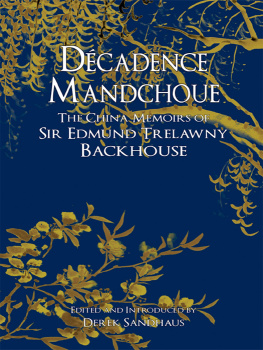
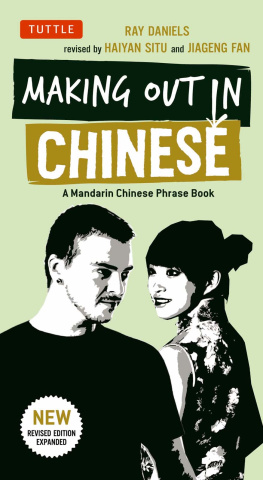
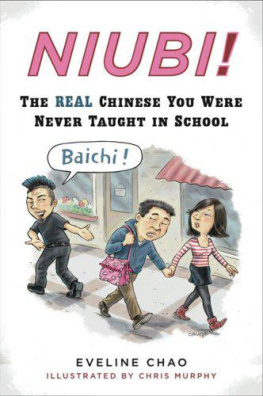
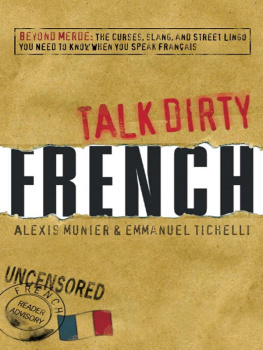
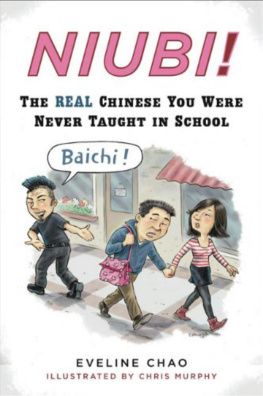
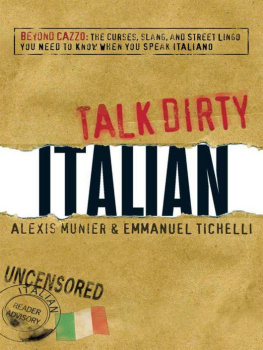
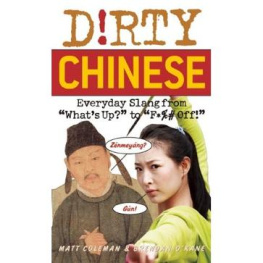
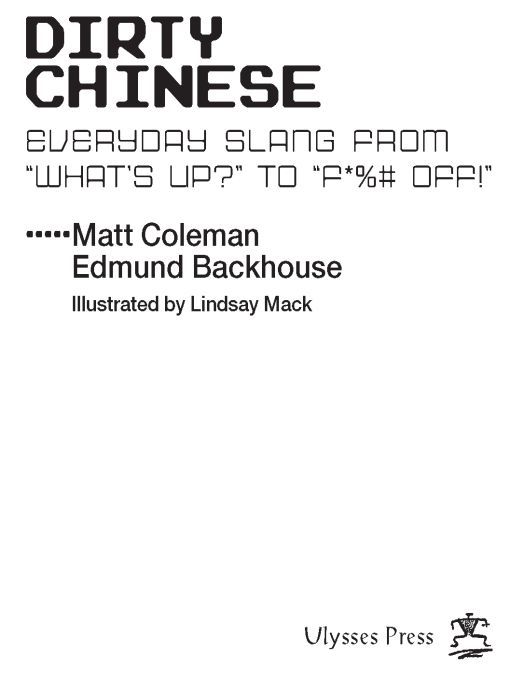
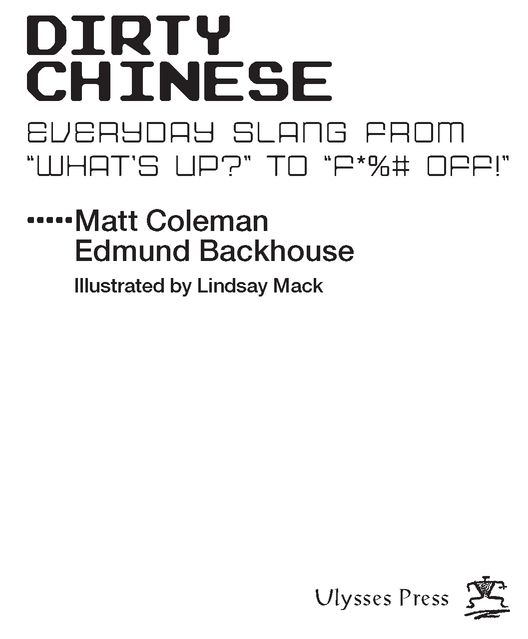
 is actually pronounced
is actually pronounced  ) is easy enough to remember.
) is easy enough to remember. (rhu; erization). In rhu, an r sound is added to the end of a wordremember that this is the Chinese r, which is pronounced with the tip of the tongue sticking up toward the roof of the mouth, rather than the English r. Most of the time, this behaves the way you would expect it tofor example,
(rhu; erization). In rhu, an r sound is added to the end of a wordremember that this is the Chinese r, which is pronounced with the tip of the tongue sticking up toward the roof of the mouth, rather than the English r. Most of the time, this behaves the way you would expect it tofor example, 
 (
(